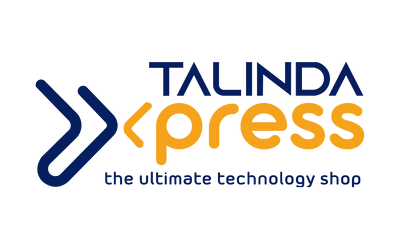Maximizing Efficiency with On-Premise Call Centers
In today's business environment, customer experience is more critical than ever. Whether your focus is on handling outbound sales or managing inbound customer inquiries, having a reliable call center system is crucial for maintaining customer satisfaction. But what should you consider when setting up an on-premise call center, and how can you choose the best call center solutions for your business?
Understanding On-Premise Call Centers
On-premise call centers provide full control over your infrastructure, offering businesses the ability to tailor their systems to meet specific operational needs. This setup is ideal for organizations with strict security requirements or those that want to manage their telephony systems in-house. On-premise solutions typically include hardware such as servers and PBX systems, which handle VoIP (Voice over Internet Protocol) calls.
While cloud-hosted call centers are becoming more popular, on-premise systems remain a strong option for companies seeking complete oversight of their data, along with the ability to integrate advanced features such as queue management, analytics, and CRM (Customer Relationship Management) systems.
Outbound and Inbound Call Center Systems
The functionality of a call center often hinges on whether it's set up for outbound, inbound, or both types of interactions:
-
Outbound Call Centers
These are primarily used for telemarketing, customer follow-ups, or sales outreach. Effective outbound call center systems can include autodialers and analytics that help optimize agent performance, ensuring they spend more time speaking with potential clients than dialing numbers. -
Inbound Call Centers
On the other hand, inbound call centers focus on receiving incoming calls, often related to customer service, support, or order processing. Features such as intelligent call routing, IVR (Interactive Voice Response), and virtual agents can help streamline operations and reduce wait times.
Multichannel vs. Omnichannel: Which is Right for You?
Two common approaches in call center solutions are multichannel and omnichannel systems:
- Multichannel Call Centers: These systems allow customers to engage via multiple platforms such as phone, email, or chat, but the channels are often siloed. For instance, an agent answering a call might not have access to a previous email interaction with the same customer.
- Omnichannel Call Centers: In contrast, omnichannel systems integrate all customer interactions across platforms. Whether a customer reaches out via chat, social media, or phone, the agent has a complete view of all interactions. This integrated approach ensures smoother transitions between channels and improves overall customer experience.
Deciding between multichannel and omnichannel solutions largely depends on your business needs. If you’re looking for a more cohesive, customer-centric approach, omnichannel systems are often the better choice.
Why VoIP Is Essential for Call Centers
At the heart of any modern call center system is VoIP technology. VoIP allows calls to be made over the internet rather than traditional phone lines, significantly reducing costs, especially for international calls. Additionally, VoIP-based systems are scalable, making them ideal for growing businesses.
VoIP systems also come equipped with key features such as:
- Call analytics: Track performance and gain insights into customer interactions.
- Queue management: Ensure that calls are handled efficiently, reducing wait times.
- Chat integration: Allow customers to engage with your business in real time through web-based chat.
- CRM Integration: Enable seamless access to customer data, helping agents provide personalized service.
Virtual Agents and Cloud Hosting
To further enhance efficiency, many businesses are adopting virtual agents—automated systems that handle basic customer inquiries, freeing up human agents to focus on more complex tasks. These virtual agents are often cloud-hosted, offering flexibility and scalability without the need for extensive in-house infrastructure.
Cloud hosting also offers the advantage of remote access, meaning your agents can work from anywhere, a critical feature in today’s increasingly remote workforce.
Conclusion
Are you ready to elevate your customer service experience? Whether you need a fully integrated omnichannel solution, VoIP-based systems with advanced analytics, or a simple calls-only setup, Talinda East Africa is equipped to help you design, implement, and manage the best call center solutions for your business. With our expertise in on-premise systems, CRM integration, and cloud-hosted virtual agents, we’ll ensure your call center is set up for success.
Contact Talinda East Africa today, and let’s build a call center that meets your business needs and exceeds your customer expectations!

